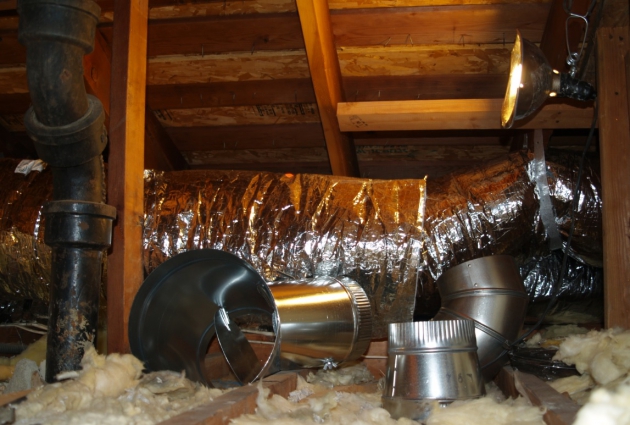Selling Inherited Property in a Slow Market

Inheriting a property can bring both emotional and financial challenges, especially when it comes time to decide what to do with it. Whether you’re looking to sell an inherited property because it’s no longer needed, it’s become a financial burden, or you simply want to move on, finding the right market solutions for a quick sale is essential. The real estate market can be complex, and understanding the best approach for selling your inherited property will help you make an informed decision, saving you time and effort.
If you’re asking yourself how to handle the sale of an inherited property, you’re not alone. Many sellers face the challenge of deciding between selling quickly or making improvements to increase the property value. In this blog, we’ll explore market trends, buyer preferences, and selling strategies to give you clear, actionable advice on how to navigate the real estate market and achieve the best possible outcome with your inherited property.
Understanding the Impact of a Slow Market
A slow market refers to a real estate environment where there is more inventory than demand. This can occur for various reasons, including economic downturns, seasonal changes, or shifts in local buyer preferences. In a slow market, homes tend to take longer to sell, and sellers may have to adjust their expectations when it comes to pricing and timelines.
When selling an inherited property, there are several factors that can influence the outcome in a slow market. First, the condition of the property plays a critical role. If your inherited home is in disrepair or outdated, it may be harder to attract buyers in a slow market, where demand is already limited. This makes it crucial to evaluate your home’s property value and determine whether it’s worth investing in repairs or whether it’s better to sell as-is.
Second, buyer preferences are also influenced by the market. In a slow market, buyers tend to be more cautious and price-conscious. They may have more options to choose from, and they might be less willing to pay top dollar for a home that needs significant repairs or renovations. Understanding these buyer preferences is key to adjusting your expectations and selling strategy.
Pricing Your Inherited Property in a Slow Market
One of the most important factors in selling an inherited property in a slow market is setting the right price. If you overprice your home, you may scare away potential buyers, especially in a competitive or slow market. On the other hand, if you underprice your home, you may leave money on the table. Finding the right balance is crucial for achieving a successful sale.
When determining your home’s property value, consider the following factors:
- Comparable Sales (Comps): Research homes in your area that are similar to yours in terms of size, location, and condition. This will give you a better idea of what buyers are willing to pay in the current real estate market.
- Market Trends: Take note of local market trends. Are home prices rising or falling? Is there more competition from other sellers? Understanding these trends will help you price your property appropriately for the current market.
- Condition of the Property: If the property requires significant repairs, you may need to price it lower than comparable homes that are move-in ready. Selling as-is may attract buyers who are looking for a fixer-upper, but they will expect to pay less.
- Financial Considerations: Think about your financial needs and timeline. If you need a quick sale, pricing the home competitively is essential. However, if you have the time and resources to make repairs or renovations, you may choose to hold out for a higher offer later.
Selling Strategy for Inherited Property in a Slow Market
In a slow market, your selling strategy must be adaptable. Here are some tips to help you sell your inherited property in a less-than-ideal market:
1. Sell As-Is
If your inherited property is in poor condition or requires extensive repairs, consider selling as-is. Many buyers, particularly real estate investors, are willing to purchase homes that need work. However, be prepared for a lower sale price, as these buyers are factoring in the cost of repairs. The benefit of selling as-is is that you can avoid the time and expense of making repairs or renovations, which can be especially helpful in a slow market.
2. Make Strategic Repairs
If the property is in decent shape but could benefit from some updates, consider making a few strategic repairs that will increase its appeal without breaking the bank. Focus on high-impact areas like the kitchen, bathrooms, and curb appeal. Even small upgrades can make a significant difference in how buyers perceive the property.
3. Be Flexible with Your Timeline
In a slow market, it may take longer to sell your home. Be prepared for a longer-than-usual selling process and try to remain flexible with your timeline. If you need to sell quickly due to financial considerations, you may want to consider a cash sale, which can expedite the process.
4. Consider Cash Buyers
If you’re looking for a quick sale and don’t want to deal with the delays and contingencies of traditional buyers, consider working with a cash home buyer. Cash buyers often purchase properties as-is, eliminating the need for repairs or upgrades. This option is especially beneficial if you need to sell quickly and want to avoid the stress of waiting for a buyer to secure financing.
Financial Considerations for Selling an Inherited Property
When selling an inherited property, there are several financial considerations to keep in mind. These include potential capital gains taxes, the cost of repairs or renovations, and ongoing property expenses like insurance, taxes, and maintenance. It’s important to calculate these expenses when determining the price you need to sell at to cover your costs and make a profit.
In addition, if you have outstanding debts related to the property, such as a mortgage or liens, you will need to factor these into the sale. If the inherited property has appreciated in value, you may be subject to capital gains taxes, which could affect your profit from the sale. Consulting with a tax professional can help you understand the tax implications and plan accordingly.
Common Questions About Selling Inherited Property in a Slow Market
When selling an inherited property in a slow market, many sellers have similar questions. Here are some common inquiries:
- How can I sell my inherited property quickly in a slow market?
You can sell your inherited property quickly by pricing it competitively, marketing it to the right buyers, or working with a cash home buyer who can close quickly. - Should I make repairs before selling an inherited property in a slow market?
It depends on the property’s condition. If repairs are minimal and will increase the property’s value, they may be worth making. However, if the cost of repairs is high and won’t result in a significant return, selling as-is may be the better option. - What is the best way to price my inherited property in a slow market?
The best approach is to research comparable homes in your area, understand market trends, and consider the property’s condition when setting a competitive price. - How long will it take to sell my inherited property in a slow market?
Selling in a slow market may take longer than usual. Be prepared for a potentially extended timeline, but stay flexible with your expectations. - Are there any financial benefits to selling my inherited property quickly?
Yes, selling quickly can save you from ongoing property expenses such as taxes, insurance, and maintenance costs. It can also help you avoid any additional financial strain if the property is causing stress or financial hardship.
Ready to Sell Your Inherited Property?
If you’re ready to sell your inherited property in today’s slow market, Pete Buys Home is here to help. We specialize in providing cash offers for inherited homes, no matter their condition. With our buying process, you can skip the repairs, avoid the hassle, and close quickly—allowing you to move on with your life.
Visit us today to get a cash offer for your inherited property. Whether you need a quick sale or simply want to move on, we’re here to provide a solution that fits your needs. Let us help you navigate the real estate market and overcome the challenges of selling an inherited home. Contact us today!





